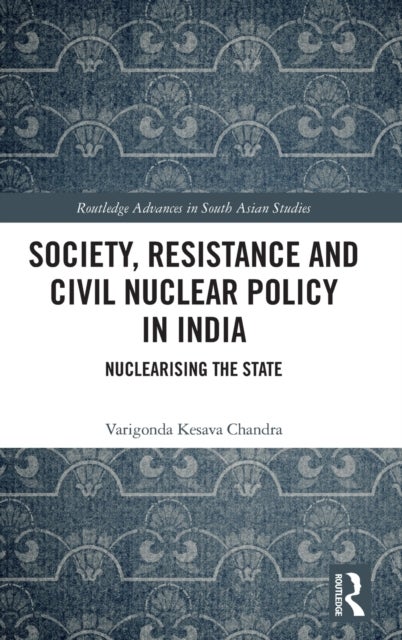
Society, Resistance and Civil Nuclear Policy in India av Varigonda Kesava Chandra
1699,-
<P>This book explores how anti-nuclear social movements impact the state¿s civil nuclear policy and its implementation by presenting a historical-comparative case study of anti-nuclear movements in India.</P><P>Drawing on social movement theory and empirical methods, the book demonstrates that the ability for anti-nuclear movements to impede the inception of nuclear plants ¿ a key element of India¿s civil nuclear policy ¿ is determined by the movement¿s collective action repertoires, the politicisation of nuclear power and the state¿s larger developmental paradigm, and the openness of state input structures. The case studies of anti-nuclear movements in Haripur, Kudankulam and Kovvada demonstrate how the implementation of civil nuclear policy is also determined by the state¿s technical and financial capacity and effective international collaboration.</P><P>With a focus on theorisation of social movements and their impact, combined with empirical studies of anti-nuclear movements, as we








